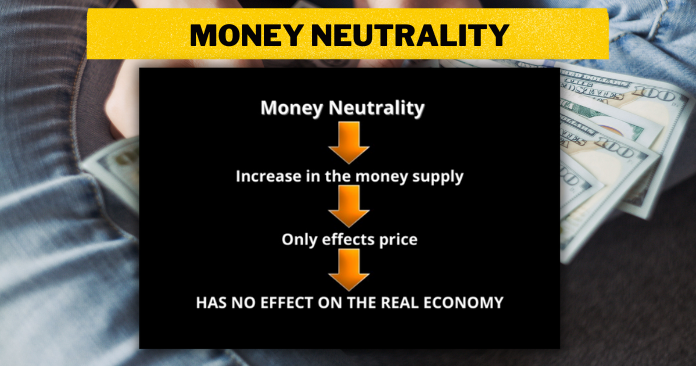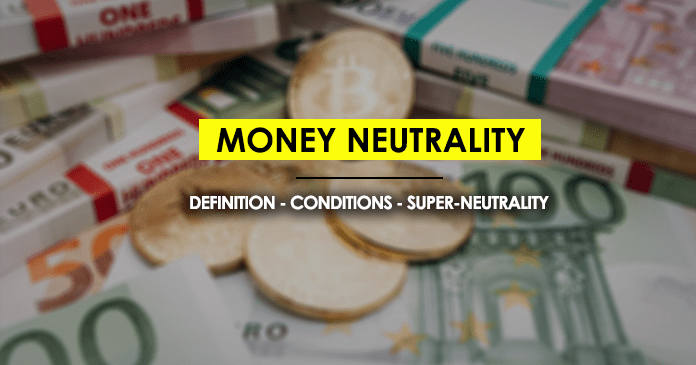Money neutrality is a monetary economics concept in which an increase in the money supply simply influences prices and has no effect on the actual economy. Money neutrality is also known as neutral money.
In other words, the quantity of money issued by the Federal Reserve and central banks may have an impact on prices and wages, but not on production or the economy’s structure.
Changes in the money supply affect the pricing of products, services, and salaries, according to the neutrality of monetary theory. However, it has no effect on total economic production.

Conditions for Money Neutrality
1. Wage and pricing flexibility are required. Changes in real wage rates and real output levels may occur if prices and wages are inflexible.
2. People must have complete knowledge of the demand and supply conditions in different marketplaces. If the information is incomplete, changes in the money supply that impact the price level might also affect actual magnitudes like saving, investment, labor supply and demand, and so on. As a result, money will no longer be neutral.
3. People must be clear of the illusion of money. It indicates that people’s behavior in the economy must be based on the real, not the nominal, value of variables like production, wages, and so on.
4. The distribution of income in the economy should not be affected by changes in the money supply.
5. The lack of government debt or open market activities in the money market is required for money to be neutral.
Super-neutrality of Money
The powerful version of monetary neutrality is money’s super neutrality. It also considers that changes in the rate of increase in the money supply have no impact on economic output.
This theory avoids short-term conflicts and refers to a financial growth rate that is consistent.
Summary
- According to the concept of neutrality in monetary theory, an increase in the money supply does not affect the real economy. But only affects the price.
- Although printing more money increases demand and increases the prices of goods, services, and wages, the fundamental nature of the economy cannot be changed.
- Not all economists agree with this method. It is generally believed that the neutrality of monetary theory is only truly relevant in the long run.
Related Articles
Functions of Money | Top 4 Discussed
Introduction to Macroeconomics


